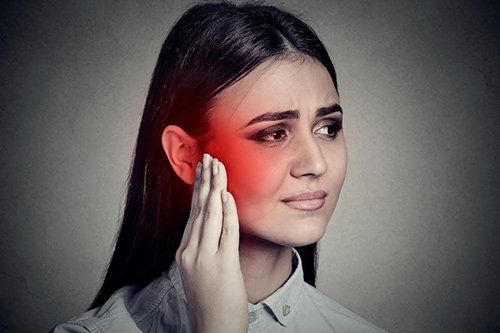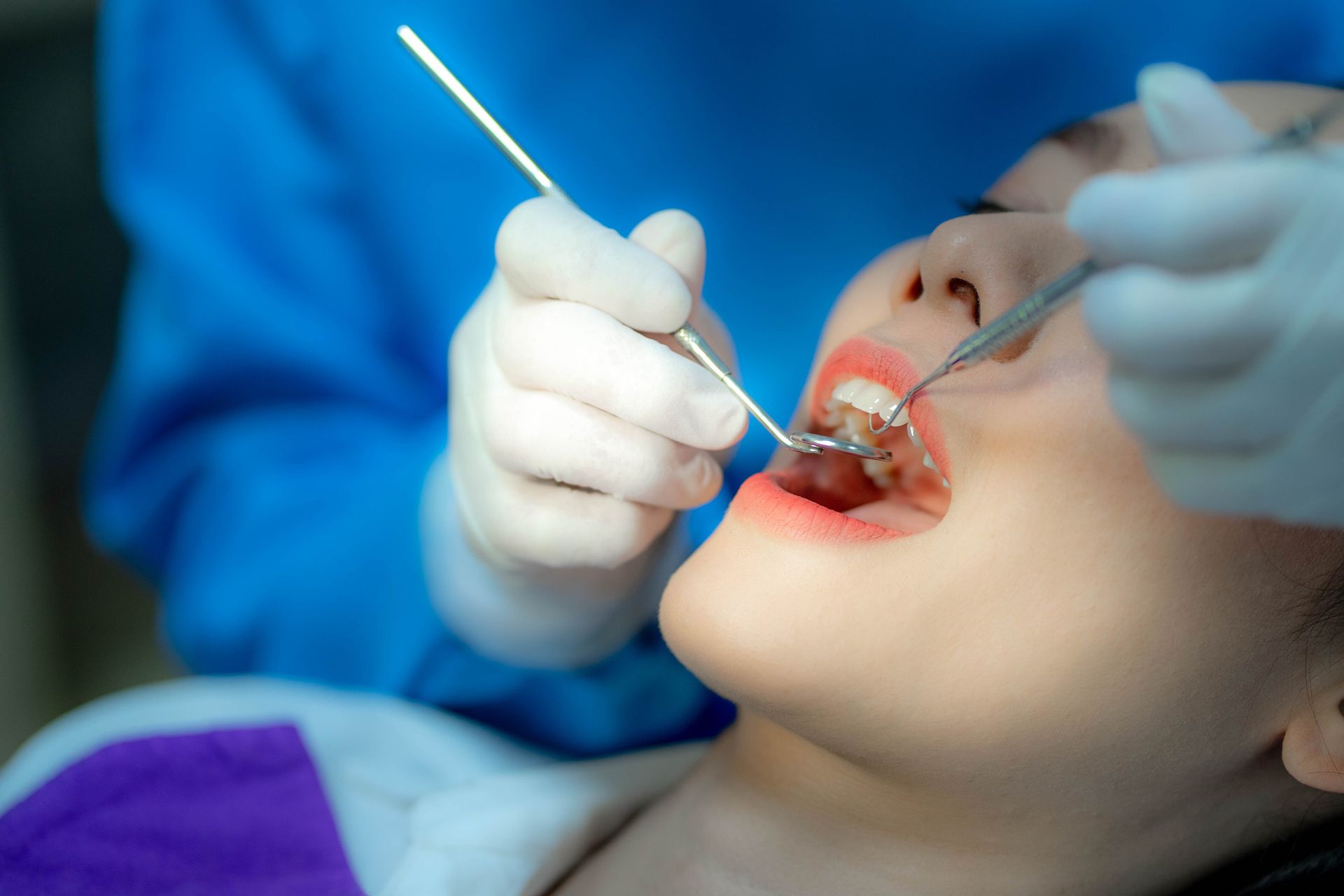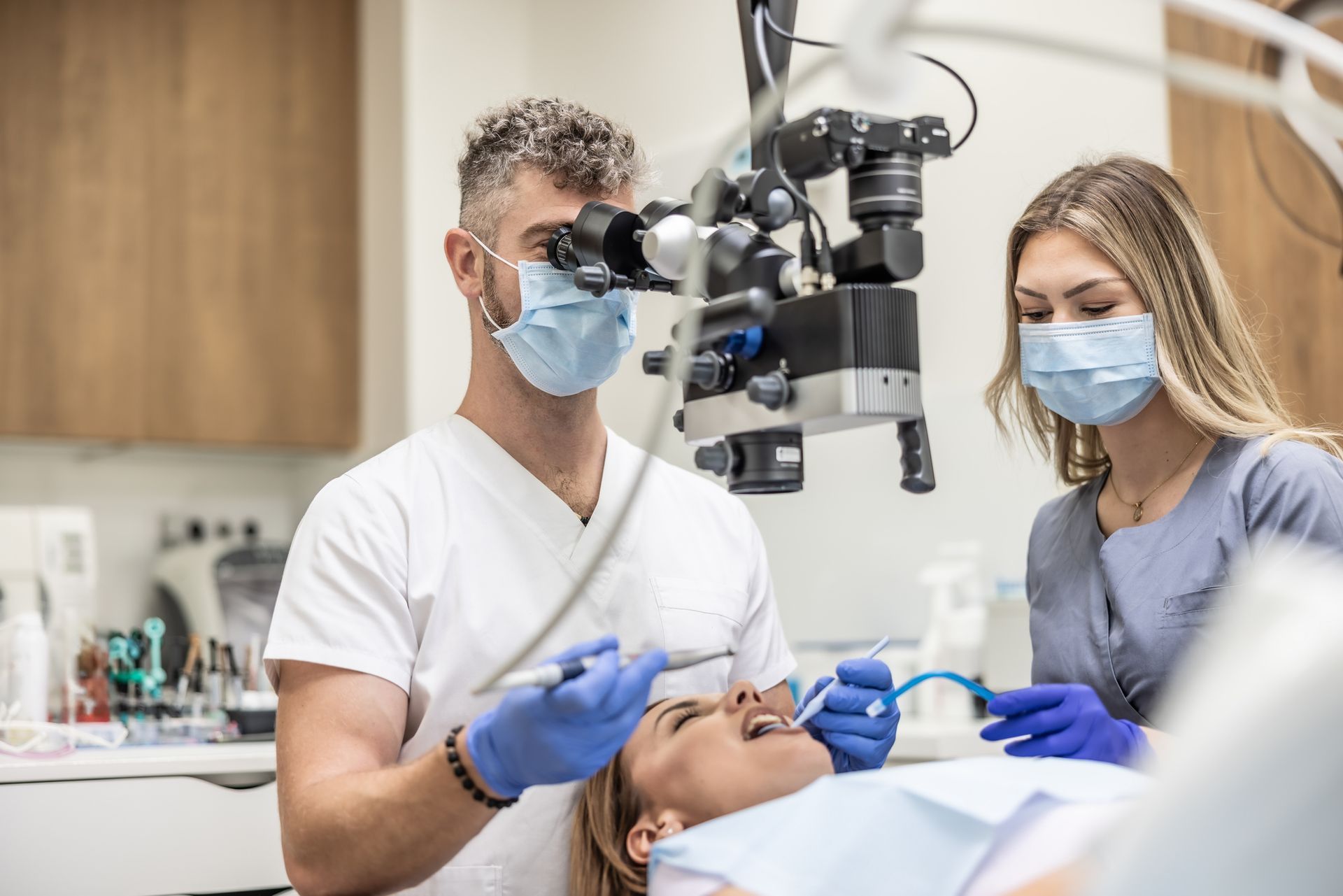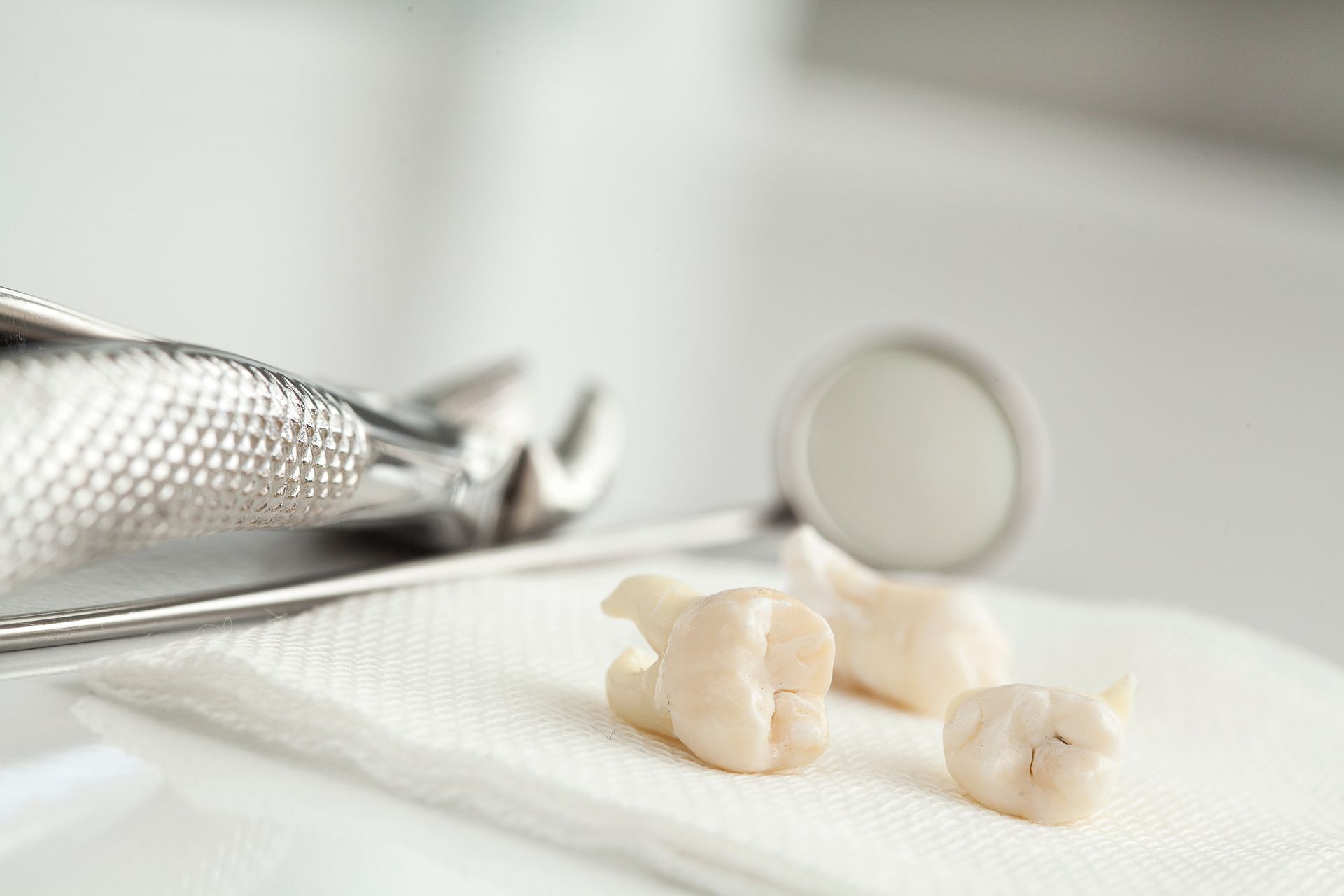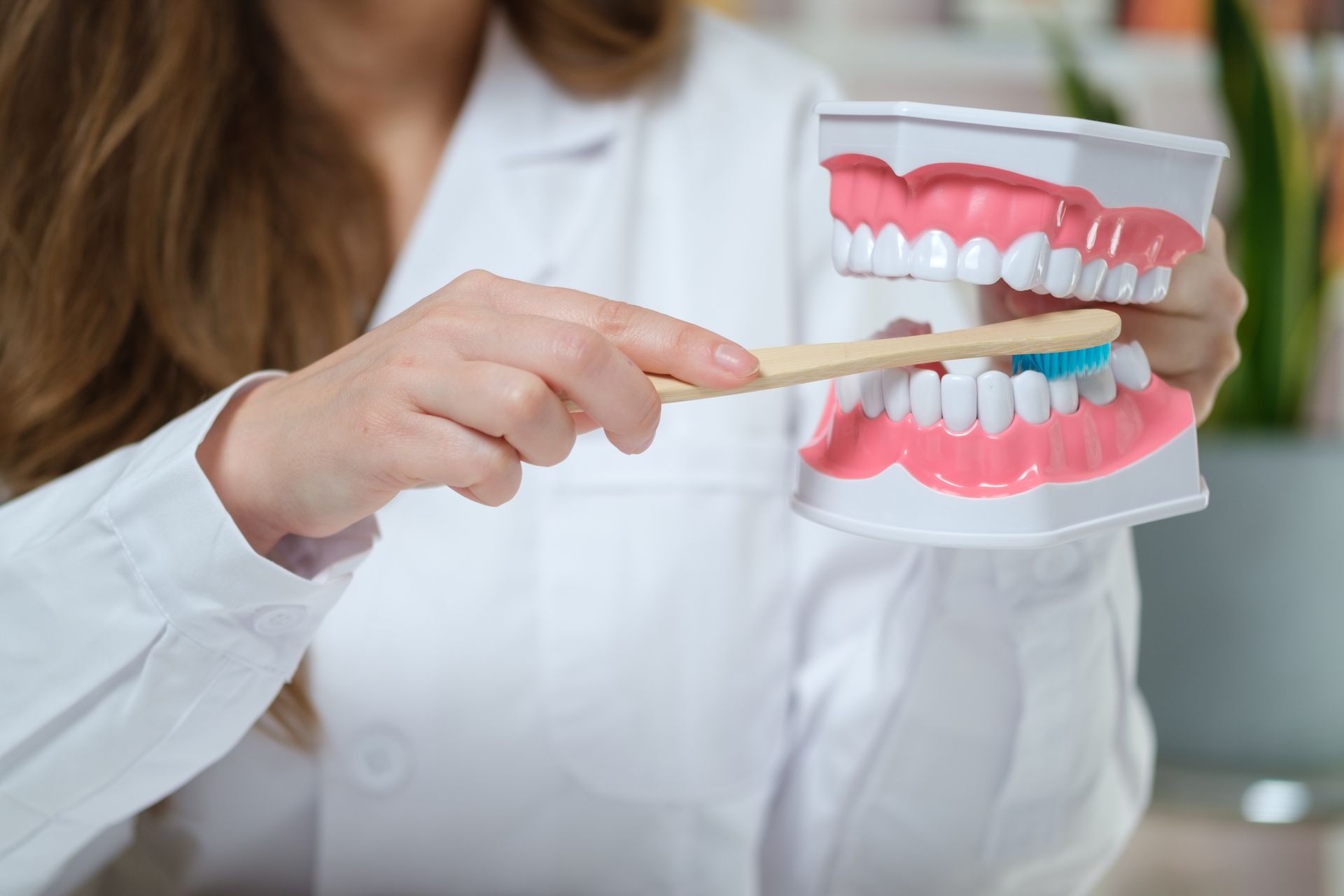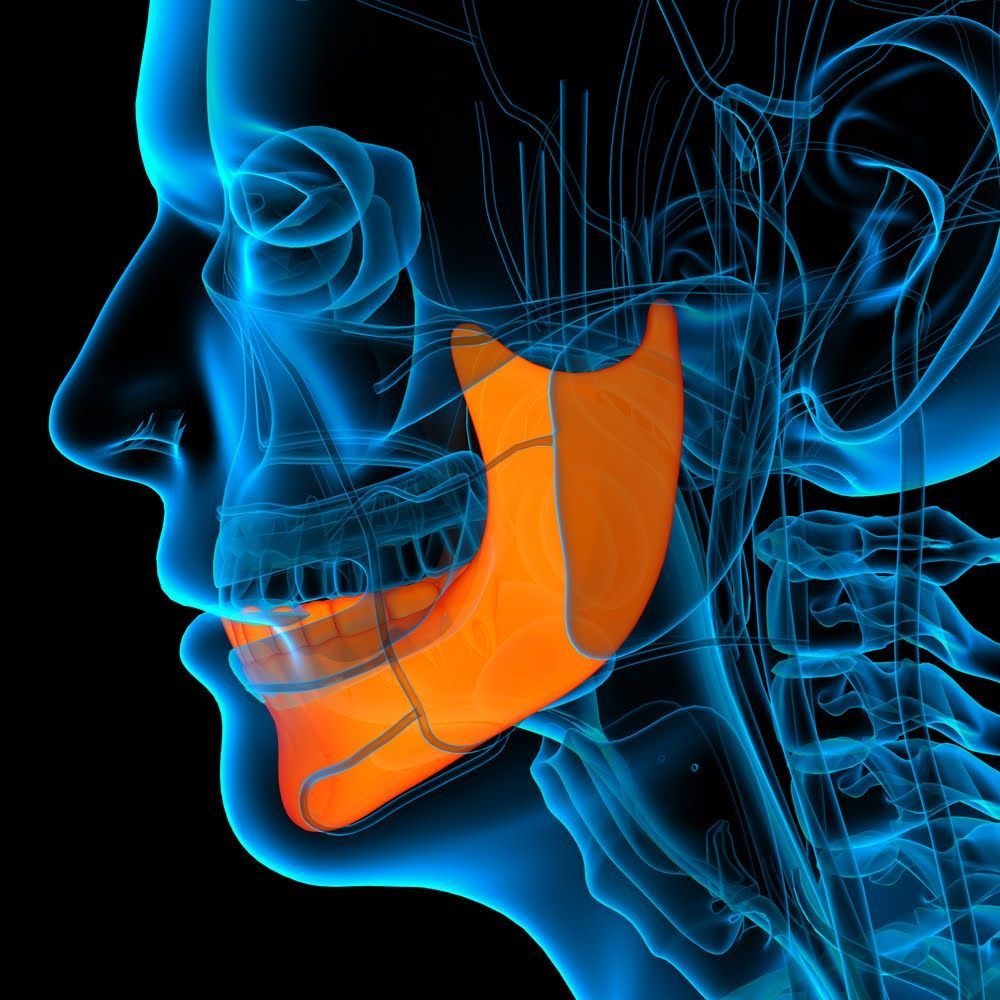Your Guide to the TMJ
websitebuilder • September 4, 2019
Your Guide to TMJ
Perhaps one of the last things you expect is to feel severe pain in your jaw. Whether the aching has built up slowly over several years or you’ve recently started feeling a sudden pain or clicking in your jaw, you need relief from your discomfort.
Below, we discuss the temporomandibular joint (TMJ) and temporomandibular joint disorder (TMD) — the likely cause of this pain you're feeling — and how a dental professional can help treat the condition.
What Is TMD and Its Symptoms?
As mentioned above, TMD is an oral health condition that affects the jaw. Specifically, it affects the right and left temporomandibular joints (TMJ) that connect your jaw to the rest of your skull. These joints allow your jaw to move in and out of place comfortably and easily. If you have TMD, one or both of these joints may not work properly, causing severe pain as you open and close your jaw.
The most common symptoms of TMD include:
- Tenderness or pain in the jaw or joints
- Facial aches
- Pain in or near the ears
- Chewing problems
If you have TMD, you may also experience clicking, popping, grating, or pain in the temporomandibular joints. You may also notice limited use of your jaw as a result of the discomfort.
What Are the Causes of TMD?
Any of the following conditions can cause TMD:
- Stress
- Arthritis
- Injury to the mouth, jaw, head, or neck
- Misalignment of the jaw
- Poor dental structure
- Teeth grinding
Even basic day-to-day habits like chewing gum consistently or slouching frequently can affect the condition of your jaw and its joints. Dentists have also learned that issues with your facial muscles can lead to TMD.
How Will a Dentist Diagnose TMD?
Your dentist will begin with a routine exam to ensure no other oral health issues are present, like gum disease or tooth decay. They'll take a closer look at your jaw and jaw joints, testing for tenderness, pain, or unequal movements.
Then they’ll order dental and facial X-rays. Depending on what your dentist finds in the physical exam, they may even ask you to go through an MRI or CT scan to get clearer, more in-depth images of your jawbones, discs within the joints, and facial muscles. This will allow them to make a certain diagnosis.
What Is the Course of Treatment for TMD?
In mild cases of TMD, dentists may prescribe any of these at-home remedies to treat the pain and discomfort:
- Anti-inflammatory medication (like ibuprofen)
- Ice packs
- Facial massages
- Stress-lowering techniques
- Dietary changes (e.g., avoid hard-to-chew foods)
A dentist may recommend jaw stretches to loosen tense muscles and strengthen the jaw joints evenly.
More severe cases of TMD require medical treatment, such as Botox injections, to the affected areas, prescription medication, physical therapy, or surgery.
What Does Surgery for TMD Entail?
If at-home treatments don't relieve your TMD pain, you'll likely meet with a few more dentists and an oral surgeon to determine if surgery is the best step to take. After another look at your mouth, jaw, and scans, your oral surgeon will recommend one of three surgeries:
- Open-joint surgery
- Arthroscopy
- Arthrocentesis
Arthroscopy and arthrocentesis are minimally invasive, which means you'll likely have a faster recovery time. Open-joint surgery, as the name implies, requires your oral surgeon to work on an open jaw. As a result, recovery takes a little longer. Additionally, each of these surgeries requires you to go under general anesthesia.
Ready to seek treatment for the pain in your jaw and mouth? at the San Diego Center for Oral & Maxillofacial Surgery. After an initial exam, we'll go over a treatment plan so you can live a life as free of jaw pain as possible.

